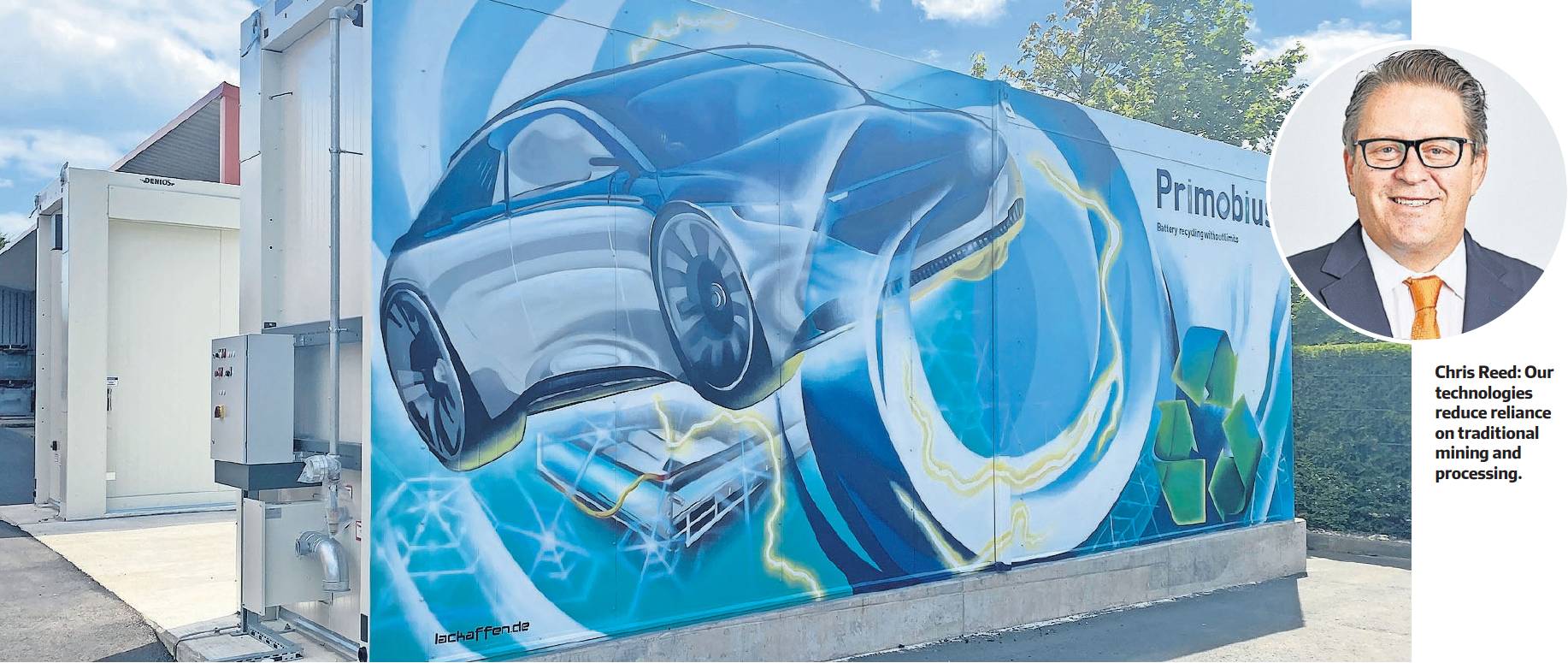Making EV batteries more sustainable
As the global electric vehicle (EV) momentum gains pace, attention is turning to the sustainability of the crucial materials that go into the batteries in the first place.
EV batteries usually have a maximum 10-year warranty, which means those powering the earlier vehicles are heading for the scrap heap. But given the environmental imperative that drives the EV push, relegating dead batteries to landfill or ‘‘smelting’’ batteries to recover a few components just won’t cut it.
A paradox of EV production is that making the batteries entails a high carbon footprint, when the mining and processing of the raw materials such as lithium, copper and nickel is taken into account. Industry estimates suggest nine tonnes of emissions are produced in making a battery alone, almost doubling the current footprint for an entire vehicle.
Chicago’s Argonne National Laboratory cites research suggesting the average American would need to drive a Tesla Model 3 for 76,800 kilometres – more than three years of driving – to reach carbon-emitting parity with a similar-sized combustion engine vehicle.
“If your vehicles don’t require a hole in the ground and associated materials transport, over time you radically reduce your CO2 footprint,” says Chris Reed, the chief executive of ASX-listed sustainable battery materials producer Neometals.
On Benchmark Minerals Intelligence estimates, there are 800,000 tonnes of used EV battery stockpiles across Europe, North America and Asia.
By 2030, Europe and North America alone are expected to account for 1.5 million tonnes of scrap batteries.
The enormous opportunity is not wasted on Neometals, an early mover in battery materials recycling as well as vanadium recovery and green-friendly lithium chemical production. In each case, the ventures are based around proprietary know-how and strong global partnerships.
“Decarbonisation, sustainability and resilient supply chains are the key challenges for the energy storage and EV supply chain,” Reed says.
“Our technologies reduce reliance on traditional mining and processing, and support circular economic principles.”
Originally, Neometals successfully mined lithium at its Mount Marion project in WA, before transitioning to its Europe-based downstream ventures. The most advanced is the company’s Primobius joint venture with the German plant builder SMS group, which has commercialised its technology with a 10-tonnes-a-day lithium-ion battery recycling operation at Hilchenbach, in central Germany.
Primobius is also supporting the construction of a similar capacity pilot plant for Mercedes-Benz in Kuppenheim in southern Germany, which will produce refined materials to make new batteries.
As well as pledging to make only electric vehicles by 2050, the car maker is moving into its own cell (battery) production.
“That’s a strong endorsement from one of the world’s best car makers,” Reed says. “The end game is to secure the batteries that come out of end-of-life vehicles and the production scrap that comes out of their cell-making process.”
In Canada, the company has recycling plans with steel maker Stelco, which is transitioning to ‘‘greener’’ electric arc furnace capacity.
Given large tonnages of scrap steel are required to feed electric arc furnaces, Stelco is targeting end-of-life cars which will increasingly contain lithium batteries. The one-stop shop solution entails Stelco dismantling the cars, re-using the steel and sending the batteries to an integrated, 50-tonnes-a-day recycling facility.
Reed says Neometals’ philosophy is to be “joined at the hip” with the car and battery makers, which will produce feedstock from both end-of-life EVs and the battery cell making process itself.
“It’s a high-class problem that needs a solution,” Reed says. “There’s not going to be one recycler that does everything but we are really well placed with a couple of big brand name partners.”
Neometals is advancing plans to recover high-purity vanadium from the slag heaps of steelmaking operations in Sweden and Finland.
Traditionally, a steel hardening agent, vanadium is also playing an increasingly important role in grid scale and next generation EV batteries.
In partnership with Australian unlisted public company Critical Metals, the company is assessing the feasibility of a 300,000-tonnes-a-year vanadium recovery operation, underpinned by a conditional agreement for vanadium-rich slag feedstock from Scandinavian steel maker SSAB.
The third leg of the Neometals story is a technology to produce battery-quality lithium hydroxide from brine or hard-rock lithium feedstocks, using a green friendly patented electrolysis process owned by Reed Advanced Materials (RAM). Neometals owns 70 per cent of RAM, with the ASX-listed Mineral Resources holding the remainder.
RAM and Portugal’s largest chemical producer, Bondalti, are evaluating the construction of a 25,000-tonnes-a-year operation in Estarreja, on the country’s west coast. An investment decision is expected by December next year.
Reed dubs Neometals as an “urban miner”, in that it provides the same critical battery metals as a traditional miner, but without the large holes in the ground.
“It shows how Australian enterprises can be global leaders in this energy transition and help to secure supply chains and make them resilient.”
